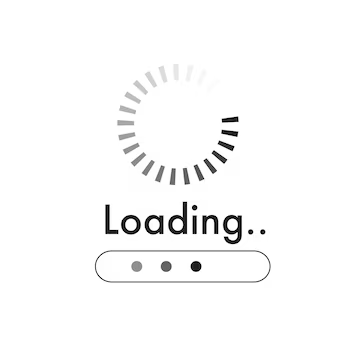Updated: 27 March 2025
Table of Contents
Back when financial planning first started evolving, traditional FP&A methods seemed like a breakthrough. Spreadsheets became the backbone of financial planning, offering flexibility and familiarity. Even today, mastering Excel remains a critical skill in finance.
There’s no denying it—spreadsheets are a staple in FP&A. They’re powerful and widely used, but as businesses grow, so do their financial complexities. At scale, finance teams begin to see the cracks: spreadsheets lack the automation, collaboration, and agility required for dynamic enterprise financial planning.
A small finance team may have once managed budgeting and forecasting with spreadsheets alone. But as organisations expand, version control issues, manual errors, and time-consuming consolidations become major roadblocks.
Let’s be clear: spreadsheets still have their place. The challenge arises when FP&A processes become too complex to handle efficiently with traditional methods alone. Ask yourself: is your finance team constantly wrestling with:
- Version control issues?
- Manual data entry errors?
- Endless hours spent consolidating data?
If so, it’s time for a wake-up call. Forward-thinking finance leaders must rethink their FP&A approach. What are the key signs that spreadsheets are holding you back? And why is a more sophisticated, AI-driven, and scalable solution the key to future-proofing financial planning? Let’s dive in.
Difficulty Collaborating and Sharing Data
Collaboration is the foundation of a high-performing enterprise. No business wants to operate in silos anymore—it’s like speaking to a wall, and it just doesn’t work.
When finance teams handle FP&A, they don’t just need financial data, they need insights from across the organisation. A truly data-driven strategy requires input from HR, Sales, Marketing, and other departments to ensure well-rounded, informed decision-making that drives growth.
Today’s business landscape thrives on collaboration, and finance is at the core of it all. Budgeting and forecasting require alignment across teams, and relying solely on spreadsheets can quickly lead to a version control nightmare. Spreadsheets make real-time collaboration and data sharing difficult, with multiple versions floating around and team members unknowingly working on outdated information.
Version control issues, manual updates, and data silos slow everything down, leading to errors, inefficiencies, and lost time. If collaboration feels like a roadblock rather than an enabler, it’s time to rethink your approach. Modern finance teams need solutions that offer real-time collaboration, seamless data integration, and a single source of truth.
Slow Performance and Crashes
Remember the last time you were on a tight deadline, and your spreadsheet decided to freeze? It’s a finance team’s worst nightmare. As your organisation scales, so does your data. Large datasets, complex models, and intricate formulas can bring performance to a crawl, leading to frustrating crashes at the worst possible moments. If your finance team is constantly waiting for spreadsheets to catch up or dealing with unexpected failures, it’s a clear sign that your current tools aren’t built for enterprise-level financial planning. Efficient budgeting and forecasting require solutions that can handle complexity at scale without slowing you down.

Increased Risk of Errors and Data Loss
Everybody makes mistakes, and spreadsheets are no exception. However, with spreadsheets, errors happen far too often. While they are powerful tools, they’re also highly prone to human errors and data loss.
Imagine your finance team working late to finalise Q1 reports, only to be met with error alerts on the screen. The frustration builds—sometimes, the issue is something as small as:
- A misplaced decimal point
- An incorrect formula
- An accidental deletion
Yet these small mistakes can have major consequences for budgeting and forecasting accuracy. As financial data becomes more complex, the risk of errors multiplies. And if your organisation relies on spreadsheets without robust backup and recovery options, you’re exposing critical financial data to unnecessary risks.
For enterprise finance teams, accuracy is non-negotiable. When your budgeting and forecasting processes are at stake, it’s essential to use solutions that enhance data integrity and minimise costly errors.
Difficulty Generating Reports and Insights
The goal of enterprise budgeting and forecasting isn’t just number-crunching. Enterprises seek to gain real-time insights that drive smarter business decisions. But if your finance team spends hours manually manipulating spreadsheets to create even a basic report, you’re losing valuable time and efficiency.
Spreadsheets can make it difficult to generate dynamic reports and extract meaningful insights, forcing finance teams to work in time-consuming, manual ways. If you struggle to visualise trends or detect patterns, your current tools may be holding you back. Look for solutions that offer advanced reporting, automated analytics, and real-time data visualisation to help finance leaders make informed decisions, without unnecessary delays.
Lack of Scalability and Flexibility
Business needs are constantly evolving, and your budgeting and forecasting tools should be able to keep up. While spreadsheets are versatile, they can quickly become limiting as your organisation grows. If you’re relying on complex workarounds to make spreadsheets fit your needs, it’s a sign that you’ve outgrown them.

Enterprise finance teams need solutions that scale with the business and adapt to changing requirements. Modern FP&A platforms provide the flexibility to accommodate growing data volumes, automate workflows, and integrate seamlessly with other enterprise systems—eliminating the bottlenecks that spreadsheets create.
Conclusion
Spreadsheets have served us well, but as your business grows, it’s crucial to recognise when it’s time to move on. If you’re experiencing slow performance, collaboration headaches, scalability issues, increased errors, or reporting challenges, it’s time to take a step back and reassess your tools. Embracing more advanced solutions for budgeting and forecasting can help streamline your processes, enhance collaboration, and provide valuable insights that drive your business forward. Don’t let outdated tools hold you back; invest in the future of your financial management and watch your business thrive!





